
I realise this is a little off-piste for Buried Treasure’s usual beat, but it’s also obviously enormously relevant to a big contingent of our audience. Inspired by Tom Ohle’s tweet, and Simon Carless’s Gamasutra article, I wanted to talk a bit about how best to get a game noticed by the press. And why it so often doesn’t work. Both the tweet and the post focus primarily on those young and trendy streamers, and clearly that’s a vital outlet for anyone wanting to get their game noticed in these new-fangled times. But press coverage is still important, so I wanted to focus on that side of things, most specifically via email, with a sort of Best Practices type thing.
You may notice the tone here is somewhat… frustrated. Sorry about that.
Why is it so hard to get coverage?
Getting a game covered is incredibly hard. That’s not your fault, it’s everyone else’s. If everyone else would just stop making games too, you’d have a far easier time. But the brutal reality is, 50 games are coming out a day at this point, and just the act of sifting through them to find anything worth playing is a full-time job. Believe me. I try. So the goal is to stand out from that crowd.
This is so, so hard because gaming sites are businesses, and businesses close if they don’t make money. And to make money, they need people to read their sites and thus load the adverts surrounding them. Because almost every site in the industry agreed to play the same gross game of SEO-chasing (we never did during my time at RPS, and we organically grew and audience of 4 million, and you could tell the difference), almost everyone is now locked in to having to think about how many eyes an article will receive. And if that article is going to be a trailer for an unknown and unavailable indie game from a first-time developer, it’s not going to get a fraction of the clicks it would need to justify the expense of posting it. And yes, that sucks, but it’s not an act of evil or betrayal by the website. It’s the way the business works. It’s why your local clothes shop sells mostly black and grey trousers, and fails to adequately service the orange-and-pink-striped trouser buying community. Stocking clothes most people don’t want to buy is expensive and bad business.
So what to do?
Get into people’s heads
The first and most obvious means of doing so is for anyone to have heard of your game before release. If you’ve sent out a trailer a couple of months before release, or made a demo version available, it doesn’t matter if it doesn’t get any coverage (really – unless it’s game-changing – it won’t, for the reasons outlined above). But if I’ve watched a trailer for something, it’s gone into my brain. When code for it appears, I’m far more likely to notice it in the pile.
The more inventive you can be about creating buzz, the better, so long as it doesn’t involve badgering or overloading inboxes.
Include the game code in the first email
Buried Treasure is a very small site in the big scheme of things, but I still receive more emails than I can sensibly manage. Sadly most of those emails read something like this:
“Hi. Big fan of [insert site here]. I loved it when you reviewed [game I maybe reviewed somewhere else]. I was wondering if you would take a look at my game? It’s a roguelike platformer deckbuilding tower defence MOBA, and I think you’ll really like it. Let me know if you want a code.”
First of all, no one’s fooled by those openings that suddenly every indie dev is using. I don’t know where it came from, but I can only assume there was a really popular GDC talk or something. It must have assured pretending you follow a writer and linking to a wildly irrelevant review they’ve previously written will definitely trick them into thinking you’re a massive fan and engorge their ego suitably into wanting to cover you. But no. Everyone’s doing it, no one’s falling for it. Please stop it.
But more importantly, when you email me to ask me to email you to email me a code… well you can already see how irritating that is. You’re not helping your game get into the hands of the people you want to cover it, you’re creating me busywork. And dear God I already have so much busywork. No, I don’t deserve your game, but this also isn’t my being entitled. It’s just me wanting to be able to check out your game without having to jump through hoops to do so. Not least because if your game blurb interests me, what I want to do is jump in and play it right then. Not whenever you get around to replying to my reply.
Obviously if your game’s on console it’s not so simple – you can’t just send out infinite codes and hope they get used, because the console owners are ripping you off. But on Steam you’ve got 80 squillion of them and no excuses.
Honestly, getting the code in the first email means it most likely will get added to a hack’s Steam account at the very least. Whether they then play it, let alone write about it, is up to fate, but at least you’ve made it possible.
Don’t ask if you can send an email!
It’s bonkers that this is necessary to say, but goodness me. I get so many Twitter DMs asking me if it’s possible to send me an email about a game. Yes. Yes it’s possible. It’s actually impossible for me to stop you doing that. So just do it. And sure, I politely reply, “Yes, please do send me an email.” But I like to hope it reads like, “Yes, please do breathe in before breathing out.” And no, it doesn’t make that email stand out when it arrives.
Or just DM me the details! You’ve already got in touch with me! It’s as daft as emailing to asking if you can DM.
Don’t try to make the writer feel guilty
At Buried Treasure I get at least a dozen emails a day asking me to look at a game. I cannot look at 12 games in a day. I can only play and write about, at most, one game in a day. So even in the most ideal conditions, I can only cover a twelfth of the games I am emailed about. That means I am letting down, disappointing, failing eleven out of every twelve people who ever get in touch.
I hate that! I wish it weren’t like that. I wish I had a team of writers and I could assign every email to someone to at least take a look. And I’m tiny. At RPS we’d receive hideous numbers of emails. The contact@ address was overwhelming to even think about getting through. I can only imagine the inboxes of IGN or Gamespot. They’d need teams of hundreds to play everything. No one can play everything.
So when you send a follow-up email saying, “I had really hoped you’d at least look at my game…” Or, “I’ve put three years of my life into this project, and I just wish someone would give it a chance…” you’re not helping your cause. You’re actually being a giant arse, making an already exhausted and guilt-ridden writer feel even worse. On a less busy day you’d get a reply from me gently telling you off. On most days I’d just click delete for the sake of my own mental health.
And yes, that is going to include people who use the Steam code you sent. Or even people who request a code from Press Engine or something like that. When you send,
“I notice you used the code I sent/you requested, and I was wondering when you were going to write about my game…”
the implication is that you’ve been stolen from and would like to receive your rightful goods. And that’s really not OK! If I don’t then write about it, that might be because I’ve got forty-seven games ahead of yours that I want to cover, and only one lifetime in which to do it. Or it’s because… I didn’t like it very much. Making me feel bad about either doesn’t help you or me. And the same goes for every other writer.
There are totally brilliant ways to send that email. I had one recently that said, paraphrased, “I notice you requested a code on Press Engine… Please let us know if there’s any way we can help, or if you need any other information. We realise you can’t write about everything, but we’re hopeful you’ll enjoy it!” That’s excellent. Because it achieves the effect of the guilt-aimed email (as in, I think, “Oh crap, yeah, I did ask for that code…”) and also makes it clear that we’re all on the same page.
The perfect email?
If I give an example of the perfect email, I fear it becoming a template that then becomes as much of a problem as it is a solution. But heck, it’d be better than the templates currently in circulation, so let’s throw caution to the wind. This, or more usefully a variant thereof, is an ideal email:
“Hi there.
My game, Lovely Trousers, is coming out on October 52rd. It’s a combination of first-person shooter and match-3, with a story about a pair of trousers that learns the true meaning of happiness, and I think you’ll really enjoy it.
SCREENSHOT
Here’s a pre-release Steam code. Let me know if you’d prefer it on Switch or PS4: 53V3N-4NGRY-L10N5.
And here’s the website with all the details and a trailer: www.lovely-trousers.con.
I’ve attached the press kit. Please let me know if there’s anything else you need!”
It’s so short! So concise! So beautiful! There’s everything a critic needs right there!
For bonus points, if you’ve already had some coverage, throw in a link to that too. A big part of the reason I’m doing Buried Treasure is to offer developers that very link to send to others. “John Walker off of RPS and Buried Treasure said it was ‘Like kissing a hottie and eating a cake at the same time.’ LINK.” I hope (and sort of know) that providing a link to my having reviewed a game makes some sites more likely to take notice.
Don’t elaborate. Don’t be HILARIOUS. Don’t be pitiful. Be a massive favour to the person you’re emailing with your brevity and your completeness.
Anything else?
Oh gosh there’s so much else, but this is already so long. I’ve really focused on just how best to get your game noticed at the email stage, because that’s how I most frequently experience first-contact. There are others, especially Simon Carless, who can give much more detailed and comprehensive guidance. Definitely subscribe to his newsletter.
But here are a few things that bug the hell out of me, to best avoid:
- Don’t say “Review Opportunity”. I’ve no idea where this came from, but eurgh it’s everywhere. You wouldn’t call a plumber and say, “I’ve got a burst pipe opportunity!” You’re not giving some plucky writer their big break here.
- For goodness sakes include links. It’s so astonishingly bonkers that this needs saying, but you wouldn’t believe how often I get emails that don’t contain a single bit of blue. Link to the Steam Store page at the very least! You want me to Google your game?!
- Do send follow-up emails, but don’t be a knob about it. Sending a friendly reminder (that doesn’t include the words “friendly reminder” – that’s as passive-aggressive as one can be) is great, and might nudge someone into covering your game. Sending a rant or whinge definitely will not.
- Remember that as much as it absolutely sucks that you can’t get coverage for your awesome game, the person you’re writing to is also tired and over-worked and badly paid. Be kind.
- You just can’t expect a reply. It’s rubbish, yes, but if I replied to every email about a game I received, I would never have time to write about any of the games. No one has time to reply, because everyone’s inundated.
- Please please please stop asking people to provide you feedback in private. That’s called Consultancy Work, and there are very excellent companies that offer it at extremely reasonable rates.
- For crying out loud, if you get coverage, broadcast it! I’m constantly astonished by the number of times my tweeted link to a review gets a ‘like’ from the developer, rather than a retweet or fresh tweet! What, are you being modest? You got a good review, sell your game!
Top image by nonsapvisuals





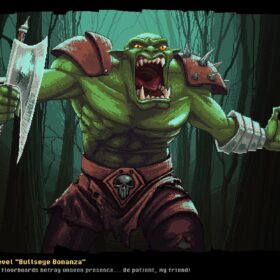
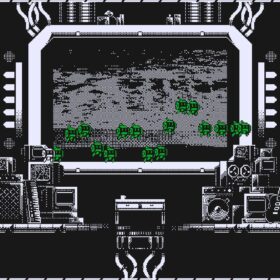


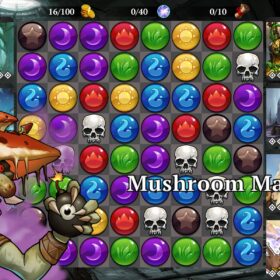
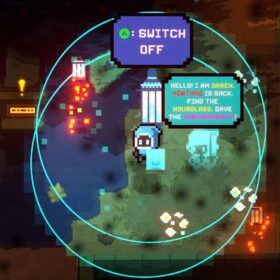




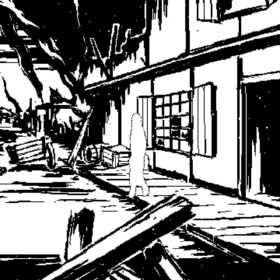

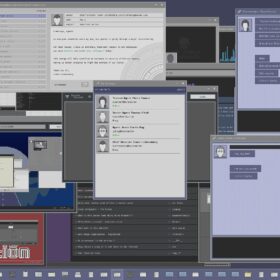

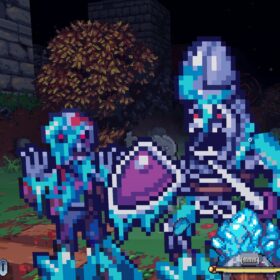



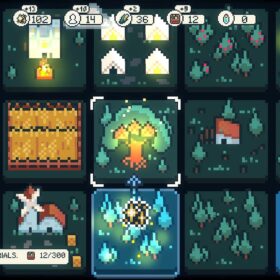

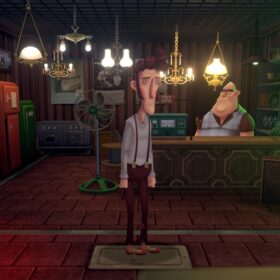


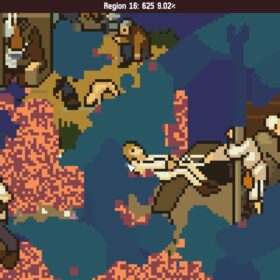



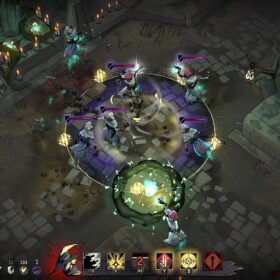
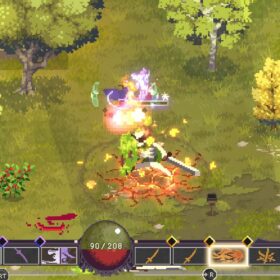
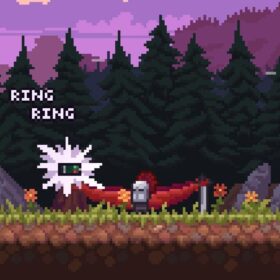

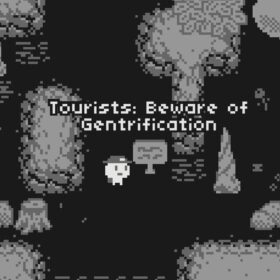
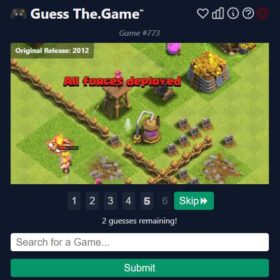
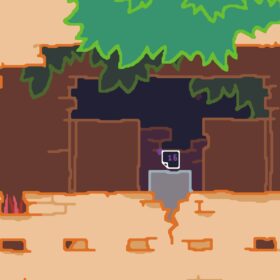
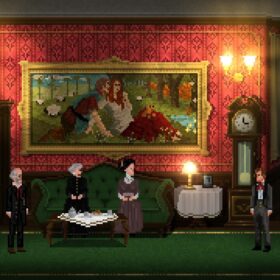


Thanks for giving me this comment opportunity!
Thanks for the perspective of what it’s like on the other side of the emails!
I was really hoping that someone would create a game that was inspired by the name Flibble Glibble Pants.
Alas, your description of Lovely Trousers is about as close as I am going to get.
I love how you punched all my dreams in the gut in a humorous and kind way. Well done! 🙂
(Also thank you for the advice, I hope it’ll come in handy next time I’m giving a journalist the opportunity to gain visibility through writing about my game…)
Wow – this was the story of my life for years, it didn’t feel awesome at the time, but the way you write it, it’s awesome reading about it!
Thank you very much for your article!
52rd. it’s too much. Its hardly pronouncible. thanks, but also I hate it.
Ha! Well worded. I bet every games reviewer on the planet is breathing a collective sigh of relief upon reading this.
My impression of that standard email you get from young game developers is, I think, down to their inexperience with the reality you face rather than any concerted attempt to have a “standard email to game reviewers” template available.
Also laughed out loud about the “burst pipe opportunity” 😂
You’re a gent and scholar. I’ll take all this to heart.